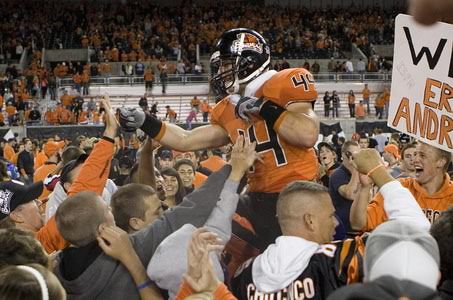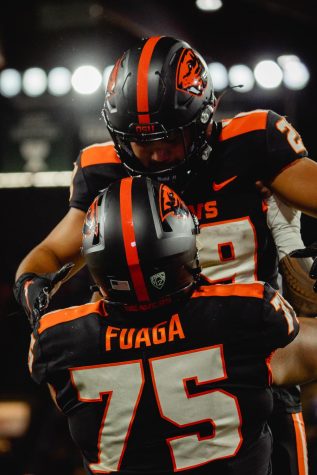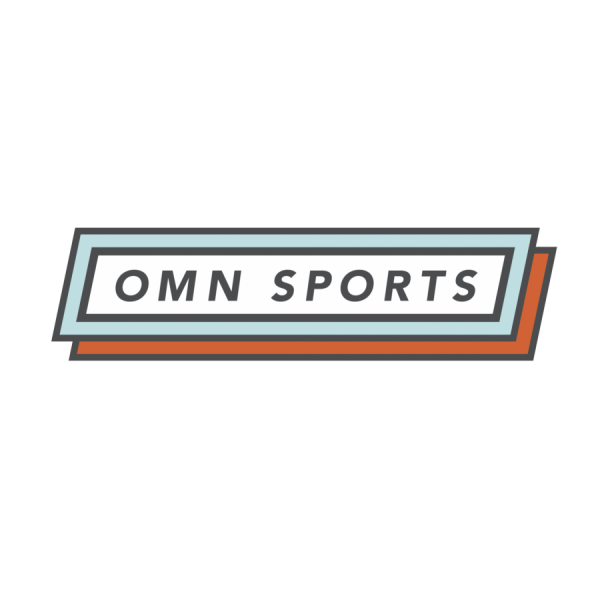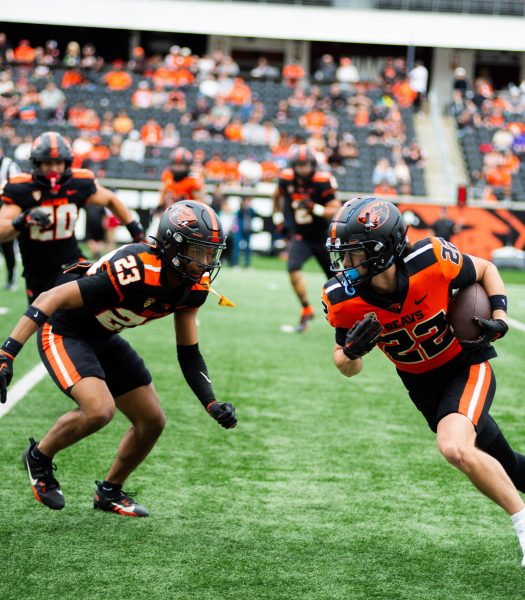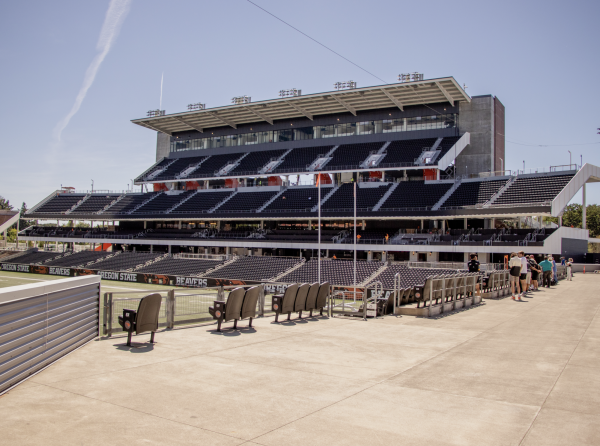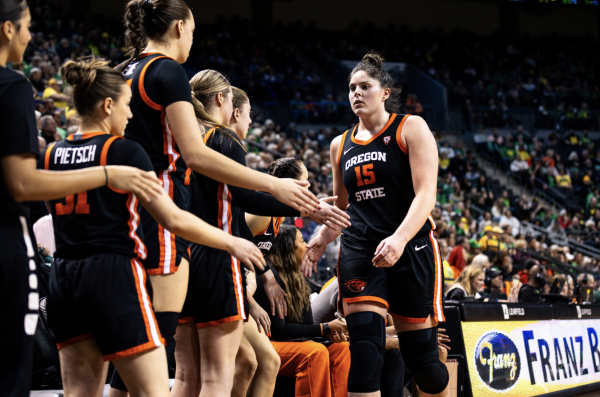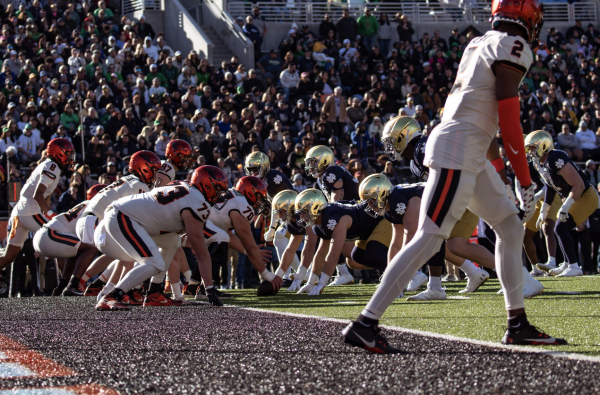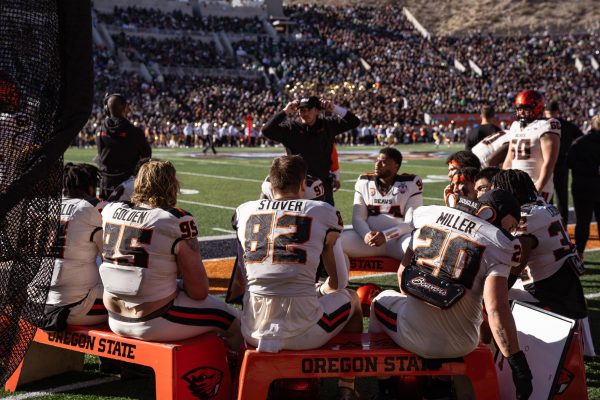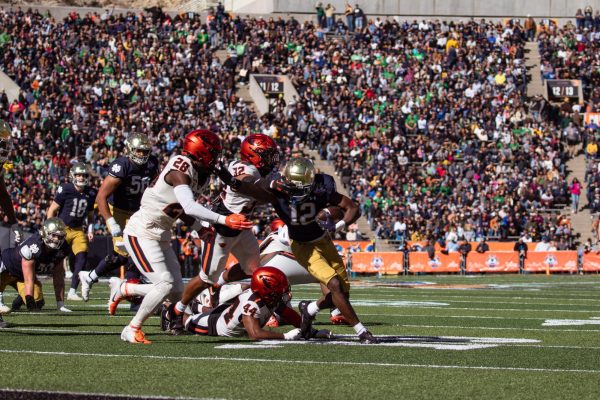Where are they now?: Greg Laybourn
October 6, 2016
At OSU: After transferring to Oregon State from Northern Arizona, Laybourn didn’t wait long before sharing in one of OSU’s biggest athletic successes of any sport. In his only year on the baseball team in 2006, the Beavers secured their first baseball National Championship in school history. Laybourn decided to quit the baseball team to focus on football — “had a blast doing it, but missed football too much,” he said — and earned a starting safety spot in 2008. He received his baseball National Champion ring during halftime of one of the football games.
He made the All-Pac-10 Second Team as a senior with his conference-leading 113 tackles, as well as two highlight plays in a pair of the biggest OSU football games in history. In OSU’s upset at No. 2 California in 2007, Laybourn helped make the key tackle in a goal-line stand, and then in 2008 he recorded a critical interception in the fourth quarter of the Beavers’ upset of No. 1 USC.
After OSU: Laybourn may have moved on from OSU, but his legacy — especially the interception of USC quarterback Mark Sanchez on Sept. 25, 2008 — hasn’t faded. With OSU up 21-14 with less than three minutes to play, Laybourn snagged an errant pass from Sanchez and weaved his way to the two-yard line. Running back Jacquizz Rodgers scored on the next play and OSU went on to beat the top-ranked Trojans, 27-21.
“That’s probably the thing I’m known for,” Laybourn said. “When that comes up, that’s the play that everyone remembers. I have mixed feelings about it, never having scored a touchdown at OSU. That was the closest I ever got, but I think that’s a little nitpicky if I’m going to complain about that.”
Even with the 2008 USC game highlighting Laybourn’s career, it isn’t that game or even the Cal upset that stand alone in his mind.
“[The USC and Cal games] really stand out, but 2006 and 2007 beating the Ducks — especially now that it’s been so long [since OSU has beaten Oregon] — those are the ones that really stand out,” the Beaverton High School grad said. “Especially being from Oregon.”
After finishing his career at OSU with a Sun Bowl win in 2008, Laybourn began his professional football journey. He had a short stint in the NFL with the New Orleans Saints as well as in the United Football League, the Canadian Football League and the Arena Football League.
“My childhood dream was to be a professional athlete, and the roundabout way I got to it wasn’t exactly what I would have scripted, but I got to play four years of professional football,” Laybourn said. “A few years removed, I’m happy with it because I did more and went further than most people expected I would, and maybe even I expected I would.”
Also important, Laybourn points out, is that after playing several years of collegiate and professional football, he still feels healthy. He has no major lingering issues from his playing career, which is not something every athlete can say.
It helped that Laybourn took some time after retiring to “decompress” from football, which he says helped the transition. He traveled to South America in 2013 and toured Chile for about four months, taking some much-needed time off.
“I wasn’t really working,” he said. “I think I told everybody I was teaching English, and I did a little bit of that, but mostly I was traveling around.”
Laybourn then came back to Oregon and started working with former OSU teammate Joey LaRocque and his soft-shell football helmet company, RockSolid. Laybourn moved on from that to real estate but is still “great friends” with LaRocque today.
Laybourn has been in the real estate industry for about a year now, working with Windermere in the Portland area. As far as his career path goes, Laybourn couldn’t be much happier with where he’s at.
“Every athlete goes through an identity crisis when their career is over,” Laybourn said. “I’ve been very fortunate to find something I really love doing, something I’m good at, and something that when you do well, it has financial benefits. That’s really the highlight now.”












































































































